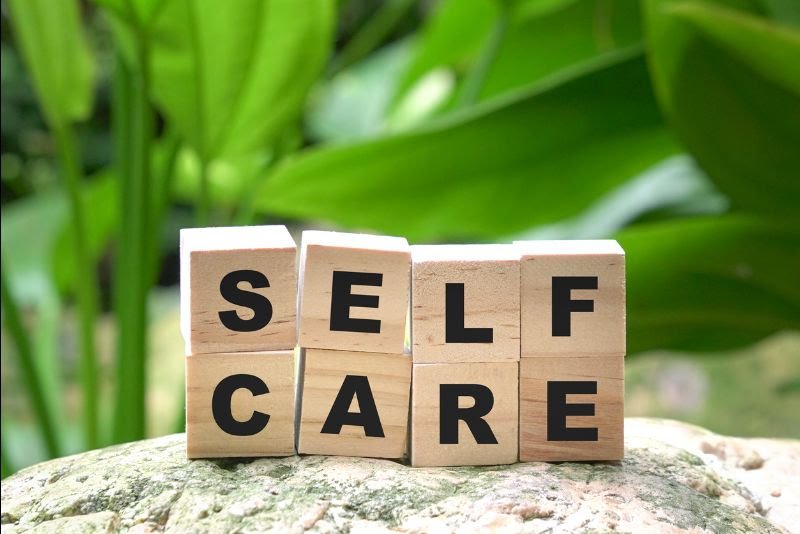Resolutions For Yourself
Dear Caregivers,
It’s the new year, and the time that many of us make New Year’s resolutions aimed at self-improvement — losing weight, exercising more, developing a new skill, and so on. And if you’ve made resolutions like these, that’s great. I certainly don’t want to get in the way of your efforts!
However, research shows that most people abandon their resolutions after a few months. I suspect that this is because so many resolutions seem to be made “from the outside, looking in”. That is, we imagine being outside of ourselves, judging ourselves as if we are a separate, different, person. We develop a mindset of seeing ourselves as an inferior version of who we might really want to be.
I’m going to ask you, as part of your new year resolutions, to flip this model: I’d like you look at yourself from the inside-out, focusing on what you admire about your current self, what gives you satisfaction, meaning, and enjoyment, and then ask yourself “How do I make these even stronger?”
After all, you are a caregiver, and one of the cornerstones of caring for others, reinforced in everything from the latest psychological studies to the ancient teachings of Buddhism, is that first, you need to care for yourself.
Developing “self-compassion” is not an easy task, particularly for those whose daily lives are deeply involved with trying to maintain the ongoing wellbeing of a loved one who is suffering from Alzheimer’s disease. But as I suggest in the book Take Your Oxygen First, whose title comes from the “in case of emergency” directions airline stewards give to people traveling with young children or an elderly person, if you don’t care for yourself, first, you won’t have the capability to care for someone else.
Here are some tips on how to start:
Practice “Self-Kindness” Instead of “Self-Judgment”: Next time you hit a bump in the road or make a mistake, don’t harshly judge yourself. Instead, regard yourself the same way you would a good friend who made such a mistake. You would of course treat that friend with understanding, encouragement, and kindness -- so do that for yourself, too!.
Fire Your “Evil Inner Caddie”: The analogy comes from the game of golf, but it applies to everyone. You would never want to play golf with a caddie who continually criticizes your playing abilities, disparagingly remarking on your every effort as a sign of incompetence. In the same way, eliminate your “inner voice” of negative self-talk, and replace it with an inner narrative that is more compassionate, realistic about your circumstances, and encouraging about the future.
Forgive Yourself: Occasionally making mistakes and coming up short is part of being human. More importantly, it is how we learn and grow. Celebrate your humanity, including the occasional slip-ups and limitations.
Be Your Own Caregiver: As much as you can, follow practices that nurture your body and mind. This includes getting enough sleep, eating right, and getting regular exercise. Strive to find a few minutes every day to do something that you truly enjoy, such as a hobby or other favorite activity.
Make Time to Take Stock: On a regular basis, take time to reflect on your experiences, and find gratitude for the things in your life that you value. This could take the form of keeping a journal, engaging in prayer, or practicing meditation.
Seek Support Before You Need It: Find someone who you can talk to about your concerns and efforts as a caregiver. It might be a friend, family member, or a professional therapist. They can help provide perspective on your journey.
It’s fine to have great ambitions for your New Year’s resolutions, but whatever they are, please add “Be kinder to yourself” to the list. Remember that the journey of developing self-compassion takes time and builds slowly. You can do it!
Here are some other ideas for practicing self-care through the year:
Enjoying the Holiday Season as a Caregiver:
During the holiday season it is crucial for caregivers to make time to take care of themselves. Here is some guidance for your self-care during the holidays, and a link to a worksheet that can help you organize your thoughts and plan.
The Importance of Tears:
As caregivers, it is especially important not to suppress our feelings. The caregiving journey can be filled with sadness, frustration, and grief. Shedding tears is a natural and healthy response to those emotions. Tears benefit people in numerous ways, including helping to detoxify the body. Find out more about the importance of tears.
Some Self-Care Actions YOU CAN DO Right Now:
An essential part of being a caregiver is caring for yourself. You have to make time to tend to yourself, no matter how much or little time you may have. Here are some ideas.
Remember, if you can’t find the information you need on our website, you can always “Ask NAN” by clicking on this link.
Best,
Rosemary D Laird, MD, MHSA
Founder and Chief Medical Officer
“Self-care is not selfish or self-indulgent. We cannot nurture others from a dry well. We need to take care of our own needs first, so that we can give from our surplus, our abundance. When we nurture others from a place of fullness, we feel renewed instead of taken advantage of.”
— Jennifer Louden




